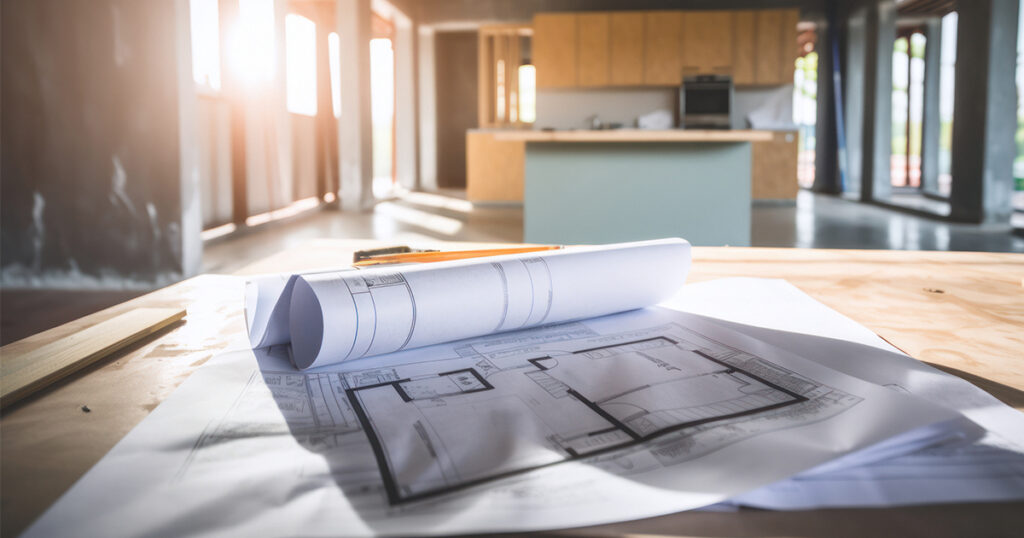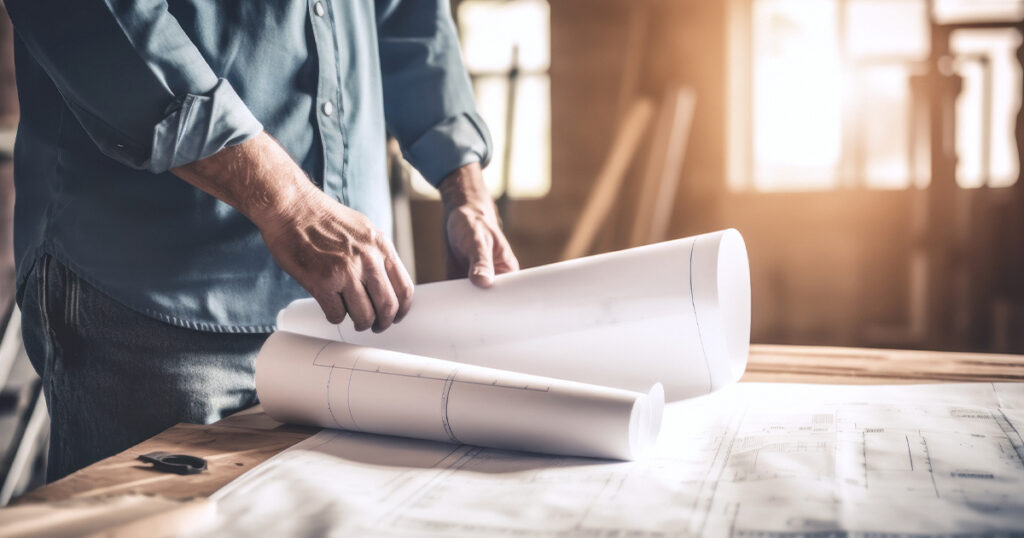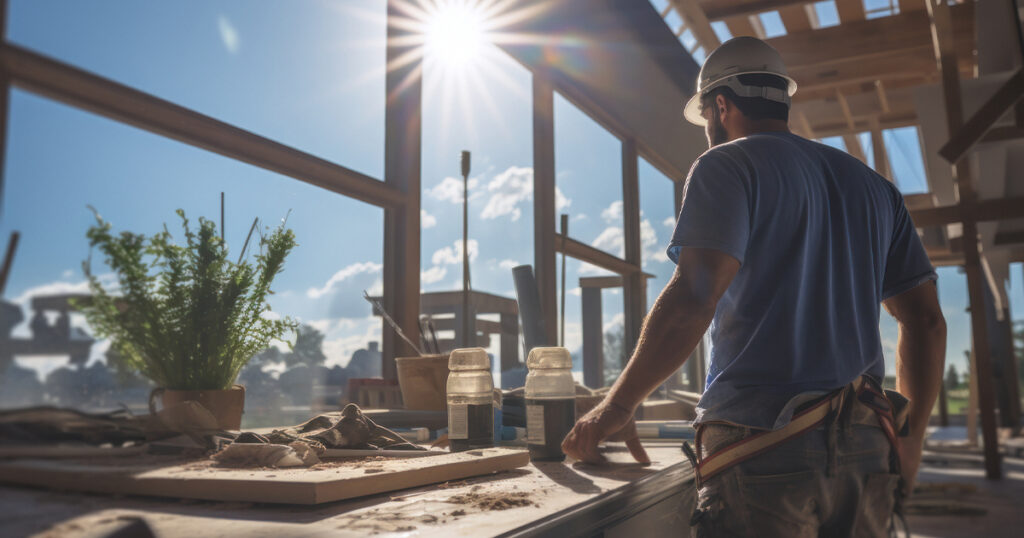The Ultimate Guide to Home Renovations: Permits
At Sinkology, we know the thrill that comes with a home renovation. There’s nothing like breathing new life into a space, especially if it’s one you use everyday like your kitchen or bathroom. Along the way, there are important considerations to make regarding when, where, and how you make renovations to your home—especially if there are larger changes in the works. As a homeowner, it’s smart to be aware of the permits you’ll need to ensure a smooth (not the mention lawful!) renovation process. Below is our guide to your home renovation permits. Happy Renovating!

Building Permits
A building permit is the foundation for any major renovation project. It is a legal document issued by your local authorities that ensures that your proposed renovations comply with building codes, zoning regulations, and safety standards. Kitchen and bathroom renovations often involve structural changes such as removing walls, adding windows, or installing new plumbing and electrical systems. Obtaining a building permit for these changes is essential to prevent potential hazards and guarantee compliance with local laws. Building permits vary from location to location, so it’s important to check with your local city or county’s building department. It’s fairly common to have to provide certain documents to get your permit approved, and most contractors will require the approval before work will begin. Some contractors help with the permit process for a fee, and others may ask homeowners to handle the process independently. Below are a few of the documents you may be asked to present:
To apply for a building permit, you’ll need to provide specific documentation related to your project. Common documents required include:
- Detailed project plans: Drawings, floor plans, elevations, and other architectural documents outlining the changes or construction.
- Site plan: A scaled drawing showing the project’s location on the property and its proximity to property lines, existing structures, and utilities.
- Specifications: Detailed descriptions of materials, methods, and dimensions of the proposed work.
- Contractor information: If you’re hiring a licensed contractor, you might need their details for the permit application.
Plumbing Permits
For kitchen and bathroom renovations, plumbing permits are a must. Alterations to plumbing systems require careful consideration and professional expertise to ensure that water supply lines, drainage, and waste disposal systems are properly installed. Local authorities issue plumbing permits to assess the proposed changes and ensure they meet building codes, which aim to prevent water damage, leaks, and contamination. While not all projects will require a plumbing permit, there are some situations that commonly require plumbing permits:
- Installing New Plumbing Fixtures: When adding new plumbing fixtures, such as sinks, toilets, bathtubs, showers, or appliances like dishwashers or washing machines, a plumbing permit is often required. This ensures that the new installations meet safety and building code standards.
- Relocating Plumbing Lines: If you’re planning to move or reposition existing plumbing pipes and drains, a plumbing permit will likely be necessary. Altering the plumbing layout requires approval to avoid potential issues like leaks and improper drainage.
- Re-piping or Replacement of Plumbing Pipes: When replacing old or damaged plumbing pipes throughout the house, a plumbing permit is usually required. This includes re-piping projects to update outdated plumbing systems or replacing pipes affected by corrosion or other issues.
- Hot Water Heater Installation: Installing a new hot water heater, whether it’s a traditional tank-based or tankless system, typically requires a plumbing permit to ensure safe installation and compliance with codes.
- Sewer Line Repairs or Replacement: If you need to repair or replace the main sewer line or sewer lateral connected to your property, a plumbing permit is usually necessary. This ensures that the work is done properly to prevent sewage backups and environmental contamination.
- Adding or Altering Plumbing Ventilation: Projects involving the installation or modification of plumbing ventilation systems, such as vent pipes and vents to prevent sewer gases from entering the home, often require a permit.
- Backflow Prevention Devices: Installing or repairing backflow prevention devices to protect the water supply from contamination may require a plumbing permit.

Electrical Permits
Electrical work is another big aspect of kitchen and bathroom renovations, and many homeowners prefer to have electricians help with larger electrical changes. For those power DIYers, electrical permits might be an important piece of your home renovation project. Whether it’s installing new lighting fixtures, upgrading electrical outlets, or adding appliances, electrical permits are necessary to verify that the work is carried out safely and in accordance with electrical codes. Faulty electrical installations can lead to fire hazards and pose a risk to your home and your family, making it crucial to have an authorized electrician perform the work and obtain the required permit.
Mechanical Permits
Mechanical permits are often required when there are changes to ventilation and heating systems. For instance, in bathroom renovations, if you’re installing a new exhaust fan, a mechanical permit will ensure it complies with ventilation regulations, preventing issues like mold growth and poor indoor air quality. Similarly, a kitchen renovation might involve upgrading or altering the kitchen hood or ventilation system, which would require a mechanical permit to ensure proper functioning and safety. You can generally assume a mechanical permit is require if you are changing any of the following:
- Installing a new heating or cooling system
- Upgrading ventilation
- Making changes to your existing HVAC (Heating, Ventilation, and Air Conditioning) system

Environmental Permits
In some regions, kitchen and bathroom renovations may require environmental permits, especially if the project involves disposing of hazardous materials like asbestos or lead-based paint. These permits are essential to safeguard both your health and the environment during demolition and disposal processes. Working with licensed contractors experienced in handling hazardous materials is crucial to navigate these regulations successfully. While it may not initially seem like your renovation will require environmental permits, situations that require these types of permits may not be as rare as you might think:
- Asbestos Removal: If your renovation involves demolishing or renovating areas of the home that may contain asbestos-containing materials (ACMs), such as older insulation, tiles, or drywall, you may need an environmental permit. Asbestos is a hazardous material, and its safe removal and disposal are strictly regulated to prevent health risks.
- Lead Paint Removal: Homes built before 1978 may have lead-based paint on their surfaces. Disturbing or removing lead paint during renovation can release harmful lead dust into the environment, requiring an environmental permit for proper containment and disposal.
- Mold Remediation: If your renovation project uncovers mold growth, particularly in large quantities or in hazardous locations (e.g., black mold), you may need an environmental permit for mold remediation to ensure proper containment and disposal.
- Soil Disturbance: Certain renovation projects may involve significant soil disturbance, such as excavation or grading. In some areas, this could trigger the need for an environmental permit to protect against erosion, sedimentation, or potential contamination of nearby water bodies.
- Demolition Debris Disposal: Proper disposal of construction and demolition debris is essential for environmental protection. Some regions may require a permit to ensure that the waste is managed responsibly and taken to approved facilities.
- Sewage and Wastewater Management: If your renovation involves changes to sewage or wastewater systems, such as septic tank installation or modifications, you may need an environmental permit to ensure compliance with regulations protecting water quality.
Undertaking a kitchen or bathroom renovation can be a fulfilling journey that enhances your home’s value, functionality, and aesthetics. However, it is essential to recognize the importance of obtaining the appropriate permits before starting any work. By securing the necessary permits, you ensure that your renovation complies with building codes, safety regulations, and environmental standards.
Before embarking on your project, consult with local authorities or a professional contractor to determine the specific permits required for your renovation. While the permit application process may add some time and cost to your project, it ultimately guarantees a successful renovation that is both safe and legally compliant. Remember, a well-planned and permitted renovation will not only bring joy to your home but also provide peace of mind for years to come.
_________________________________________
If you have any additional questions during your search for the perfect copper, fireclay farmhouse sink or crafted stainless steel sink, our Sinkologists are here to help. Contact us or follow us on Facebook, Houzz, Pinterest, Instagram, or TikTok for more helpful tips and design ideas.